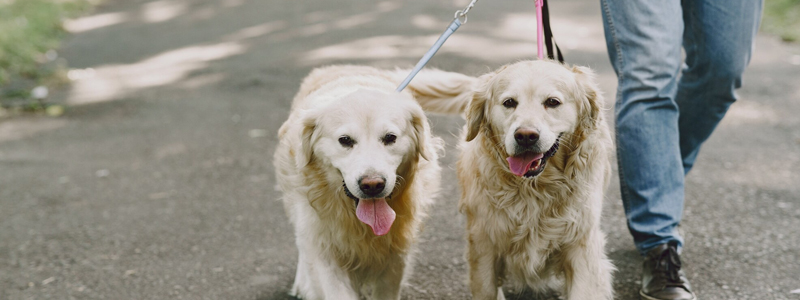BY: SAMANTHA BARTLETT, DVM
Sarah Yarborough, a researcher at the University of Washington, is studying risk factors for canine cognitive dysfunction (CCD). Yarborough’s research used a population of dogs from the Dog Aging Project. Her recently published study found that dogs who are not active are almost 6.5 times higher risk than active dogs of developing CCD. Dogs with a history of neurological, eye or ear disorders were also at a higher risk. The risk of CCD increased 52% with every additional year of age.
These findings are not surprising considering what we know about human dementia. Increasing exercise and stimulating the brain have been known to decrease the danger of dementia in people. Many human studies have shown a correlation between hearing disorders and dementia or Alzheimer’s disease and, most recently, a study showed a correlation between both hearing and vision loss and a high chance of developing dementia. Increasing your dog’s level of exercise not only helps prevent CCD but may also help lower your own odds of developing dementia. Cognitive stimulation by playing games with your dog, engaging in training sessions and puzzle treats can also help delay the symptoms of dementia.
Diet also plays a role in decreasing CCD risks. Diets high in antioxidants, medium chain triglycerides, omega-3 such as from fish oil, arginine, L-carnitine and B vitamins as well as vitamin E and C have been shown to improve brain function. Feeding dogs a combination of supplements seems to have a synergistic effect which is not seen when individual supplements are provided. Supplementing with certain probiotic strains has also been associated with the reduction of anxiety that may be associated with CCD.
Many people attribute loss of housetraining and changes in behavior to aging, but do not realize they are signs of CCD and steps can be taken to help. Educating pet owners on signs to look for and encouraging conversations regarding changes associated with aging can aid veterinary staff in helping dogs with CCD that may otherwise go undiagnosed.











